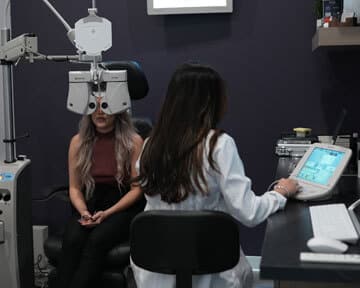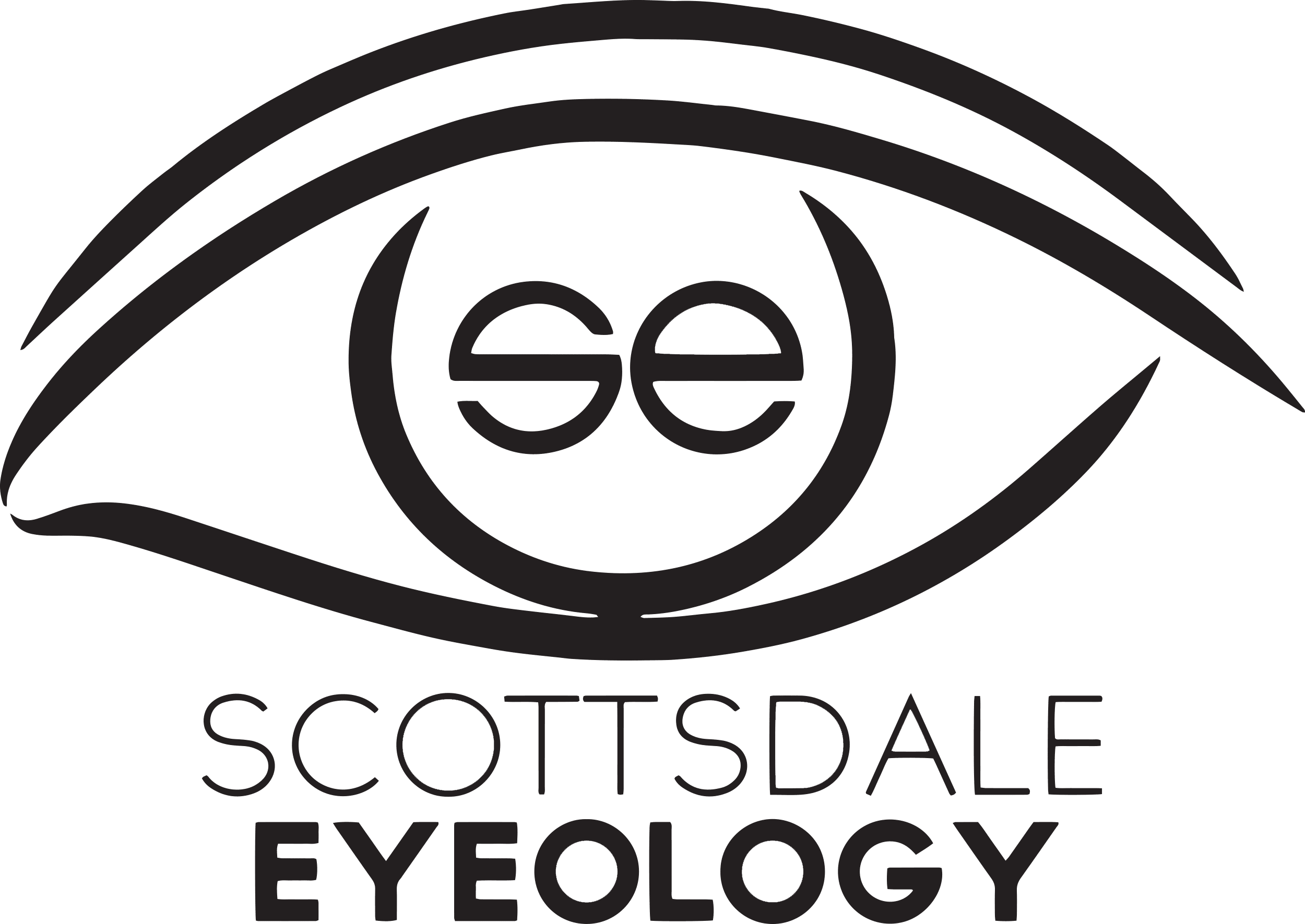
Comprehensive Eye exam
A comprehensive eye examination is an examination of your visual system and overall ocular health. Your examination includes a vision assessment for glasses and contact lenses, eye coordination and depth perception, and color vision. However, having good vision does not always mean your eyes are healthy. During your annual comprehensive eye exam, your doctor can dig deeper than a simple visual assessment and evaluate the health of your eyes to maintain good vision. Your doctor will not only determine your prescription for glasses and/or contact lenses, but will also evaluate your eyes for common eye diseases, such as glaucoma, macular degeneration, or retinal holes/tears or detachment. As ocular diseases progress gradually, early detection and treatment can mean all the difference in maintaining your vision.
Common vision screenings, as preferred at wellness checks or in schools, often do not detect common eye conditions like hyperopia, astigmatism, or glaucoma. A comprehensive eye exam includes the necessary testing to determine the state of your vision and eye health.
A comprehensive eye exam will help to detect any eye problems at their early stages when they are most treatable. To book your comprehensive eye exam, contact our office at (480) 806-2181 or Book Online.

Astigmatism
Astigmatism is a common eye condition which causes blurred and distorted vision at distance and near. It is characterized by the imperfections in the shape of the cornea and lens of the eye. This condition usually develops in childhood. However, it is possible to have mild astigmatism and not know it. This is especially common when you have blurred vision at night but at other times you may not notice any distortions in your vision. There are two type of astigmatism, regular and irregular. Irregular astigmatism is less common and can be caused by an eye condition such as keratoconus or from an eye injury and may cause more distortion in vision.
Astigmatism can be treated with a spectacle prescription. However, high or irregular astigmatism can result in the need for specialty contact lenses.
If you are experiences distorted vision, eye strain, headaches or night blur, contact our office to book an appointment at (480) 806-2181 or Book Online.

Myopia
Myopia, also called nearsightedness, is a common eye condition where objects close to you such as a book are clear but objects at a distance such as a street sign are blurry. Essentially your eyeball is just too long! So the cornea and lens do not have the ability to focus light clearly on your retina. In most cases, myopia can be corrected through the use of spectacles or contact lenses. However, it is important to get a comprehensive eye exam annually because myopia poses an increased risk of glaucoma, cataracts, retinal holes/tears and detachments.
Schedule your comprehensive eye examination today by contacting our office at (480) 806-2181 or Book Online.

Hyperopia
Hyperopia, also called farsightedness, is a common eye condition where generally objects further away are more clear than closer objects. Hyperopia tends to affect people differently. Some people may not experience changes in their vision at all. Others, especially people with high hyperopia, may experience blurred vision at distance and near. Our eyes always want to see clear so we will involuntarily make as much effort as possible to focus. This can cause you to squint, have tired eyes, experience headaches, or eye strain. If you experience similar symptoms, contact our office at (480) 806-2181 or Book Online.

Presbyopia
Are you holding things further out for them to be clear enough to read? Are your arms not long enough anymore? That is presbyopia! Sometime in our forty’s, we will find it is becoming difficult to see up close. Presbyopia happens naturally as we age because the lens in our eye becomes less pliable and is unable to focus at near. Common symptoms of presbyopia include having a hard time reading small print or having problems seeing objects that are close. This leads to headaches, eyestrain, and frustration! Luckily, your doctor can prescribe progressive lens and/or multifocal contact lenses to eliminate these symptoms and allow for clear and comfortable vision at all distances. If you would like to speak to an eye care professional to learn more about presbyopia, lens options, or need help booking an appointment, contact our office at (480) 806-2181.
Same Day Glasses
At Scottsdale Eyeology, we want you to experience clear vision as soon as possible, Our in-office lab allows our doctors and opticians the ability to provide a complete pair of glasses quickly and efficiently on the same day as your appointment. Start the day by seeing clearly.

